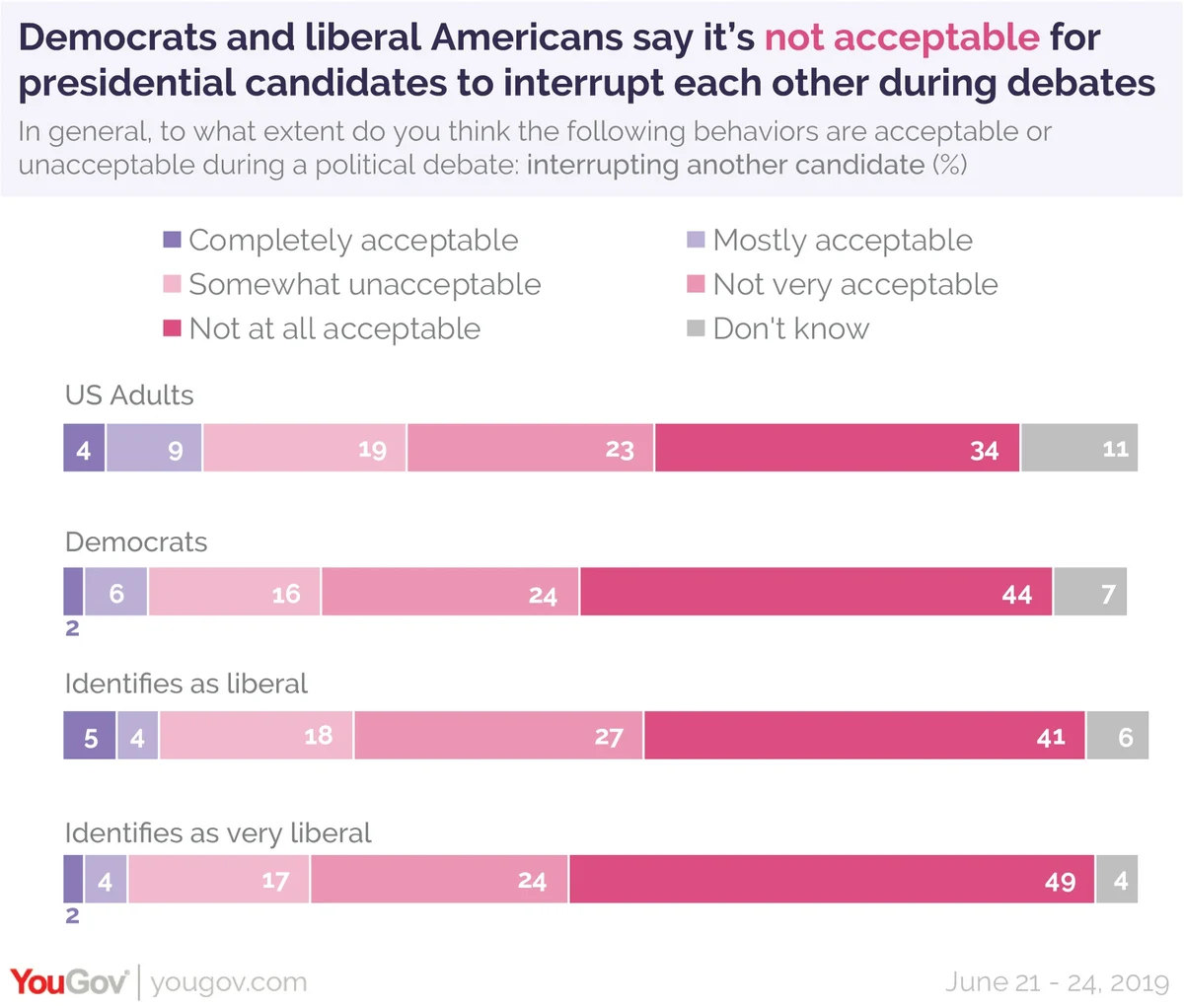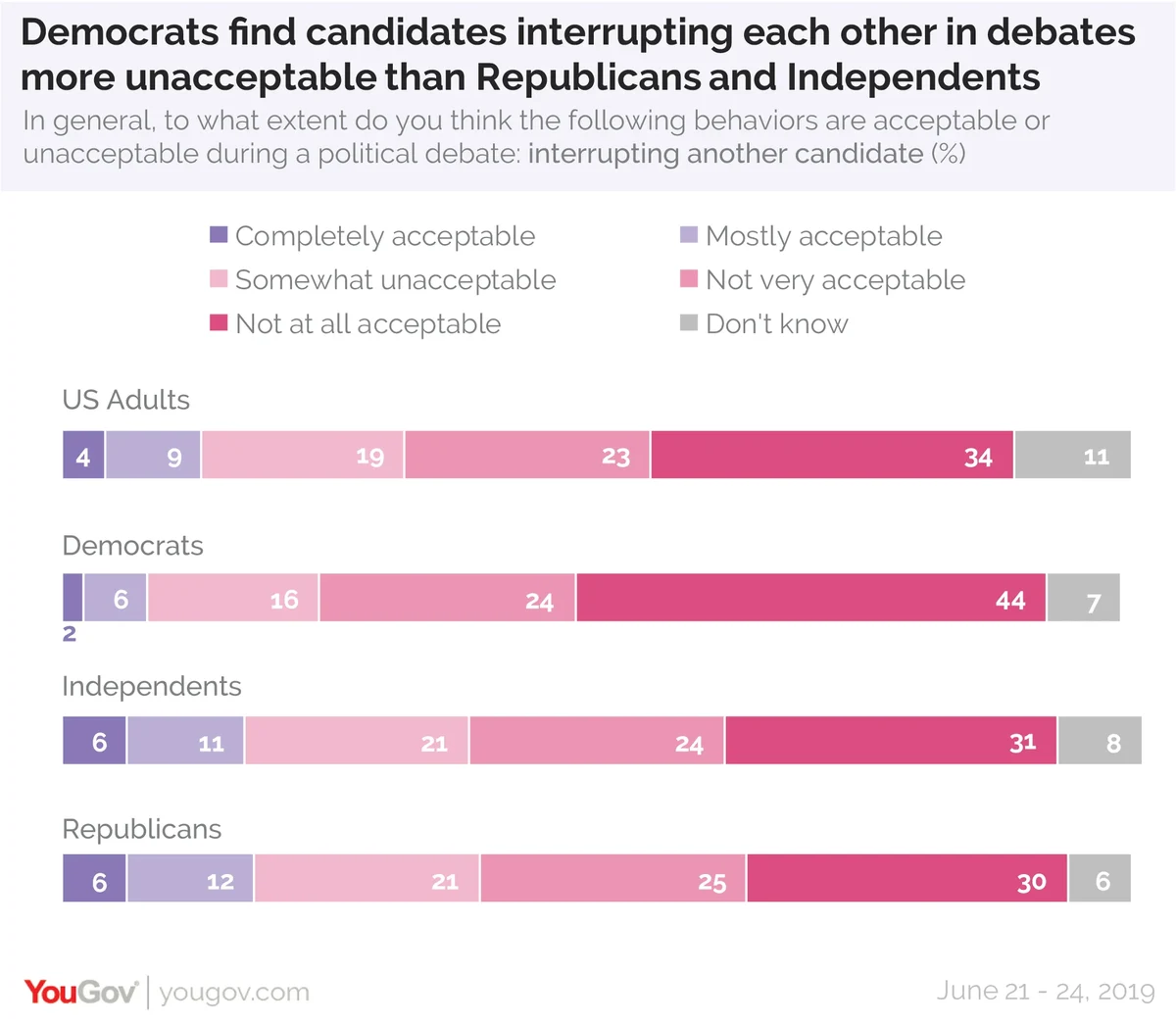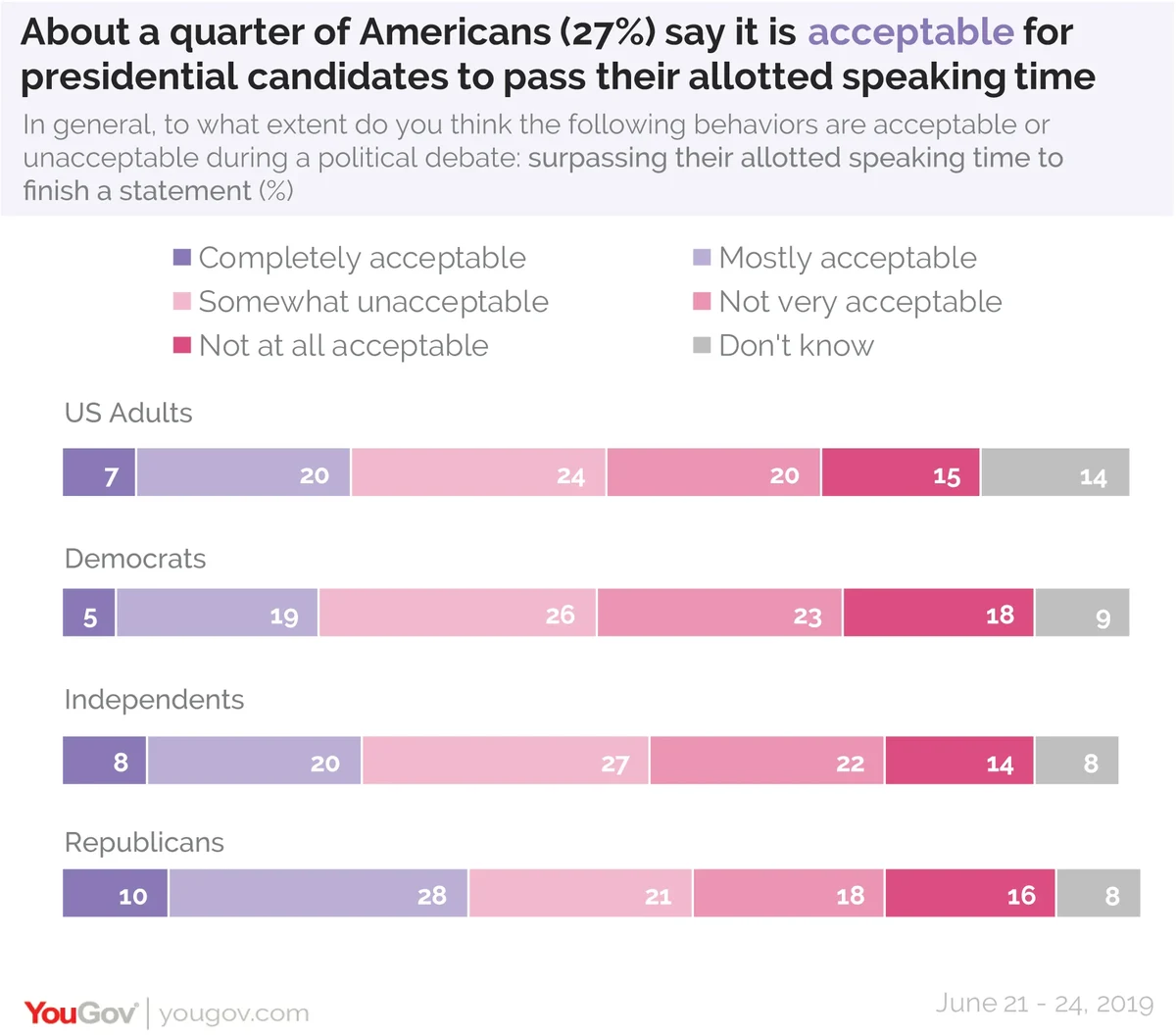Democrats want to see decorum during the presidential primary debates—or so they say in a new YouGov RealTime poll.
Seven in 10 Democrats (70%) say it is “not very acceptable” or “not at all acceptable” for a presidential candidate to interrupt the moderator in a debate. Similarly, a majority of Democrats (69%) say it is “not very acceptable” or “not at all acceptable” for a presidential candidate to interrupt an opponent during a debate.

Candidates’ behavior will take center stage on June 26 and June 27 during the first Democratic presidential primary debates in Miami, Florida. Each contender will be trying to stand out from a crowded field of 25 candidates, and win support for themselves and their policies from a national audience without turning off their existing supporters.
The political interruption game could be inevitable: Whichever Democratic candidate succeeds to become the party nominee will face off in 2020 debates against President Donald Trump. During the 2016 presidential race, Trump became so well-known for cutting off moderators and opponents that the interruptions were tallied and analyzed for impact.
But, even among 2016 Trump voters, a majority (56%) say interrupting another candidate is “not very acceptable” or “not at all acceptable.” However, former Trump voters were more than twice as likely (19%) as former Hillary Clinton voters (8%) to say interrupting a fellow candidate is completely acceptable or mostly acceptable. Republicans and Independents are also twice as likely as Democrats to be open to candidates interrupting another candidate.

Over two in ten (22%) Republicans and 19% of Independents say it's “completely acceptable” or “mostly acceptable” to interrupt a debate moderator, compared to 9% of Democrats.
Americans are more split on whether candidates should surpass their allotted speaking time to finish a statement. Nearly one in four (24%) Democrats say this is acceptable behavior compared with 38% of Republicans. Over four in 10 Democrats say going over debate time is “not very acceptable” or “not at all acceptable” in contrast to 34% of Republicans.

Related: Dogs in the White House: Which 2020 dog names are winning America’s vote?
Methodology: Total unweighted sample size was 1,258 US adults, which contained 462 Democrats, 305 Republicans, and 330 Independents. The figures have been weighted and are representative of all US adults (ages 18+). Interviews were conducted online between June 21 - 24, 2019.
Sign up to be a member of the YouGov panel and see the survey results here.
Image: Getty












